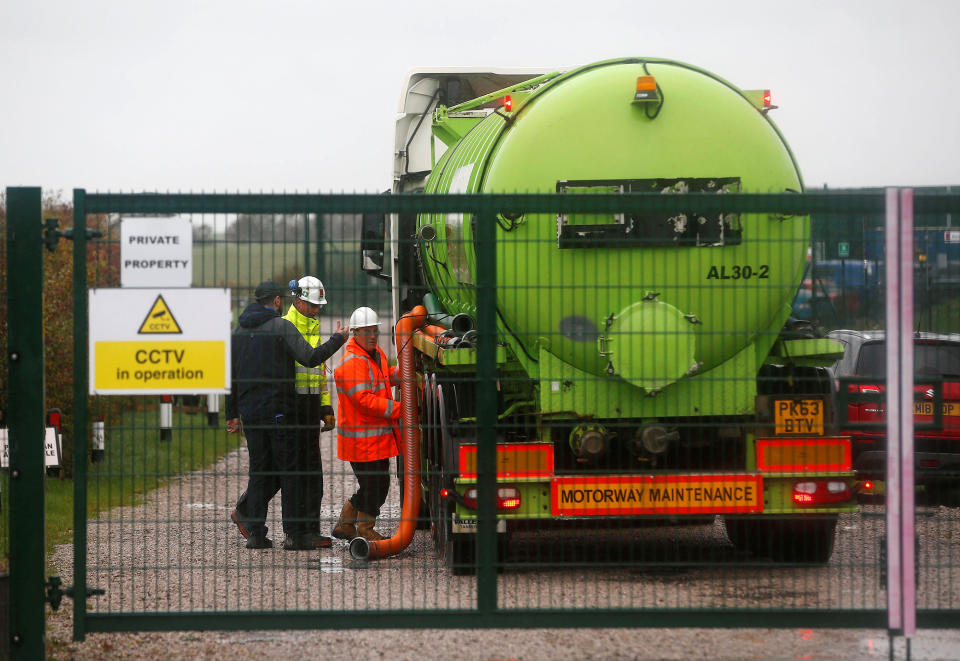Four earthquakes detected in Blackpool just days after fracking restarts
Blackpool has been hit by several small earthquakes just days after fracking started in the area.
The British Geological Survey said it has detected four earthquakes close to the site at Preston New Road near Blackpool since the controversial practice started up again for the first time since 2011.
Two on Thursday night were recorded at minus levels but on Friday afternoon a 1.20pm, a quake measuring 0.3 was recorded, which campaigners say hits oil and gas company Cuadrilla’s own ‘amber’ warning levels on its traffic light monitoring system. Another quake in the early hours of Saturday registered 0.0.
The quakes would not have been felt by people in the area but campaigners say they prove that the site should be closely monitored and fracking reconsidered.

Fracking stopped in Lancashire in 2011 after two earthquakes – one reaching 2.3 on the Richter scale.
But Cuadrilla started drilling again on Monday after campaigners lost a legal battle to stop them at the High Court.
MORE: British-built spacecraft with ‘Star Trek-style impulse engines’ jets off for Mercury
MORE: Saudi Arabia claims missing journalist Jamal Khashoggi was killed ‘in a fight’

In a statement the British Geological Survey said: “Since hydraulic fracturing operations started at Preston New Road, near Blackpool, we have detected some small earthquakes close to the area of operations.
“This is not unexpected since hydraulic fracturing is generally accompanied by microseismicity (very small earthquakes that too small to be felt).”

It said it had deployed extra surface seismic sensors across the north of England to help provide an independent assessment “of both the baseline levels of natural earthquake activity and any induced seismicity”.
“This dense network of sensors allows us to detect smaller earthquakes than we are typically able to do in other parts of the UK. The data from this network is openly available and all the seismic activity that we detect will be published on our web site.
“The Oil and Gas Authority (OGA) has strict controls in place to ensure that operators manage the risk of induced seismicity. This includes a requirement for operators to undertake detailed geological studies, and submit a Hydraulic Fracture Plan (HFP) setting out how they will control and monitor the fracturing process and assess the risk of induced seismic events.”

David Smythe, Emeritus Professor of Geophysics at the University of Glasgow, told Metro.co.uk that the concern is that the tiny tremors could trigger bigger earthquakes.
He said: “To quote Cole Porter; ‘There may be trouble ahead’. Cuadrilla’s only safe option is to cease fracking.”
A statement from Cuadrilla said: “We take the monitoring and regulation of seismicity seriously, with daily reports sent to the regulators.”
It said the recording of the ‘microseismic events’ showed that its traffic light monitoring system is working “to the highest standard”.

